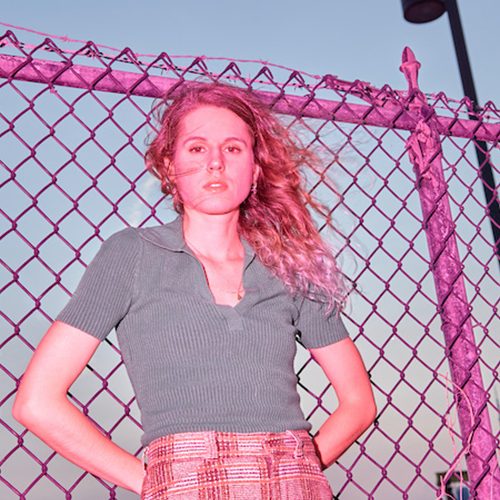I am twenty-four years old, and yet I sometimes worry that I’m running out of time. This is, of course, absurd, and whenever I tell an older person how I feel they tell me as much. I haven’t even left my parents’ house yet! There are so many experiences and trials and epiphanies that I haven’t had–that I haven’t been in the position to have–and with those experiences I will mature, emotionally and artistically.
It’s easy enough to know that on an intellectual level, but it’s much harder to take it to heart. Every time I see someone my age with a book deal, every time I see a list of publications in a twenty-something’s Twitter bio, every time I check on a high school classmate and see their success, I wonder why that can’t be me. Should I have tried harder in high school? Should I have a novel written by now? Or have I missed the last exit, and all I can do now is drive along and curse myself for being too slow, too lazy, too late?
Iulia Ciobanu, the frontwoman for the Toronto-based trio Cherry Blaster, has had these same anxieties. As she approached her thirties, she began to worry that her “time was up” as an aspiring musician. This all culminated in a surreal dream in which Ciobanu’s silver hairs began to turn a rosy pink. Struck by this image, she began to write, and soon enough she had “New Age.”
Ironically–or appropriately, depending on your view–this song about the fear of aging has a playful, childlike air. The synth sound is sweet, bloopy, and somewhat plastic; it sounds like a little keyboard you’d give a toddler. The rhythm, too, feels off-kilter, almost tentative, as though it’s being learned in real time. However, it all feels quite intentional, and it only adds to the odd, lightly eerie atmosphere.
“New Age” touches on Ciobanu’s strange dream right at the start, and even without context it’s a striking piece of imagery. Grey hair, a natural part of aging that we’ve been taught to fear, is being replaced with pink hair–something brighter, something people find aesthetically pleasing, but nonetheless completely unnatural to find in hair. “You looked down into the sink, down into the sink,” Ciobanu singsongs in her uncannily sweet voice, and she lets it hang in the air for a moment. It’s a nice note of ambiguity: what does this person think about this unnatural development? Is she happy? Frightened? Or is she simply wondering about her place in the world?
“It’s nice to meet you,” Ciobanu chimes. “Introduce me to the new you!” Later, she suggests they’ve gotten younger: “baby, you’re a teenage dream!” It’s an innocent enough sentiment, but with the themes of aging and the self it takes on an eerie resonance. She could be talking about someone else, or she could be referring to herself. Either way, it suggests the kind of future Ciobanu and I both fear: a future where the self is irrelevant, where people can become obsolete, where there’s always a newer model to take your place and where the world is only too happy to upgrade you.







